Follow us on Telegram for the latest updates: https://t.me/mothershipsg
Each year, the arrival of smoky air and ashes in our neighbourhoods tells us that the Hungry Ghost Festival is here.
On the seventh month of the lunar calendar, which is from August 8 to September 6 this year, devotees descend from their flats to the ground floor and put up offerings for hungry, wandering ghosts.
Large metal containers are installed in our neighbourhoods for devotees to burn paper offerings like hell money, houses, cars, electronic devices, clothes, as well as shoes and bags that bear more than a passing resemblance to certain luxury brands.
Along roadsides and in front of small altars, lighted red candles are lined up neatly. And next to that, joss sticks and food offerings like baos, cakes, fruits, and traditional sweets are presented to feed the wandering souls.
Before the Covid-19 pandemic hit, devotees would also put up nightly getai performances held in the heartlands, where the front rows are typically left empty for these wandering “brothers”.
These are familiar scenes that we experience every year during the seventh month. Across Singapore, many practise these traditions, but do we know the reasons behind them?
We spoke to Venerable Shi You Wei, abbot of Di Zang Lin Buddhist Temple who revealed that the practice of burning paper offerings — which has become a major part of the festival — isn’t something that comes from Buddhist or Taoist beliefs.
Hungry Ghost Festival traditions
The Hungry Ghost Festival is a religious holiday, celebrated by Taoists and Buddhists.
Shi said that the festival originated from a Taoist story which says that during the seventh month, the gates of hell open, and souls come to visit the living.
It might sound a tad spooky for some, but think of it as the dead coming back for a "summer holiday", said Shi.
According to Taoist and Buddhist beliefs, the dead descend to hell to face 10 courts of judgment by deities before they can be freed from their wrongdoings and ascend to heaven.
Those who are not yet able to move on remain in hell and visit the living during the seventh month.
Many believers practise rituals every year as a way to pray for absolution, and to alleviate the suffering of their deceased ancestors.
They also appease wandering souls by offering them food and entertainment in the form of getai performances. In return, devotees request protection from these ghosts.
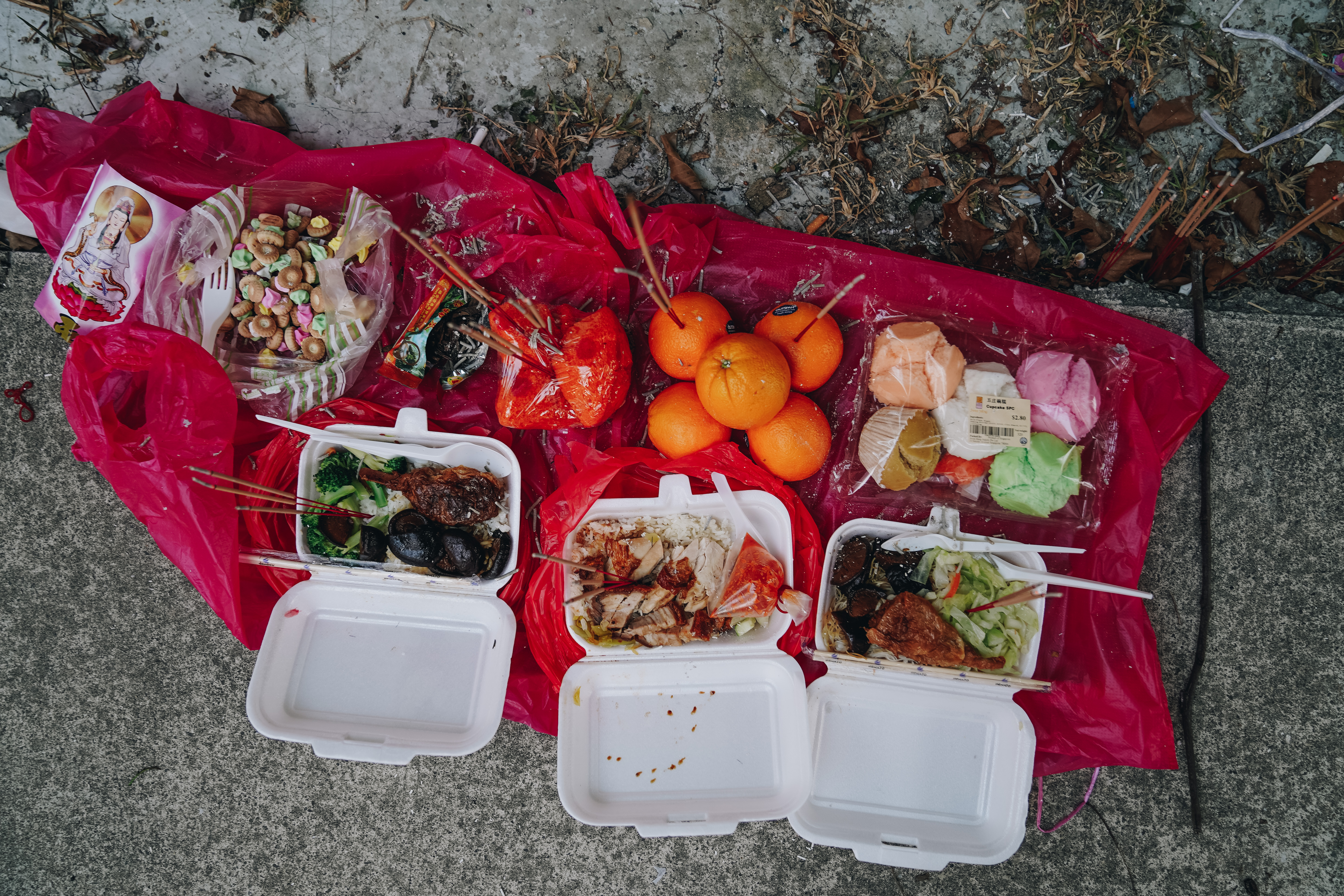 An assortment of food offerings like packet food, oranges, colourful cakes, and gem biscuits. Image via Rachel Ng for Mothership.
An assortment of food offerings like packet food, oranges, colourful cakes, and gem biscuits. Image via Rachel Ng for Mothership.
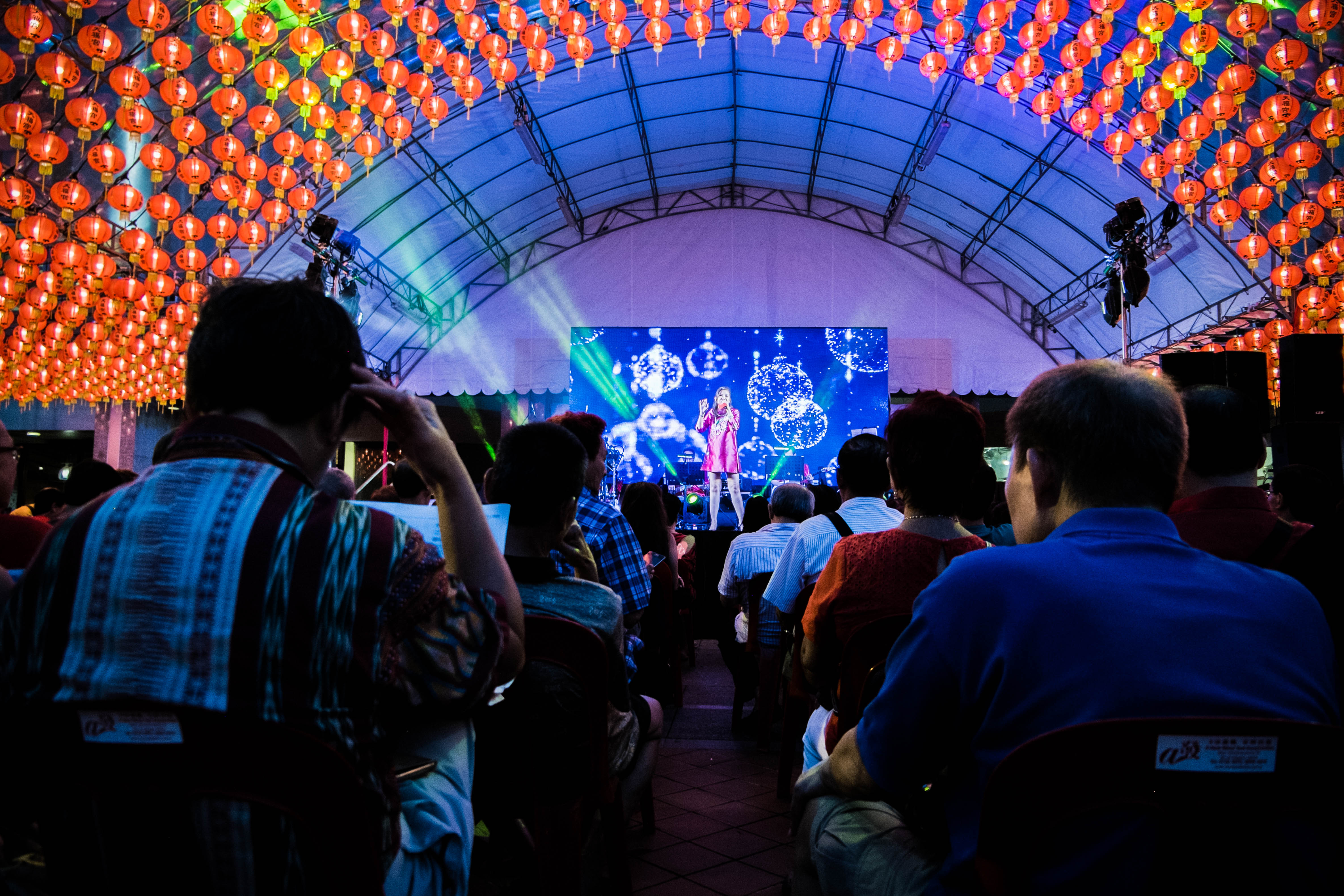 Getai performances are held in temporary tents. Image via roots.gov.sg.
Getai performances are held in temporary tents. Image via roots.gov.sg.
To take care of the material needs of the deceased in the afterlife, devotees burn hell notes (joss papers) and elaborate paper offerings that resemble all sorts of material comfort like houses, cars, and even credit cards.
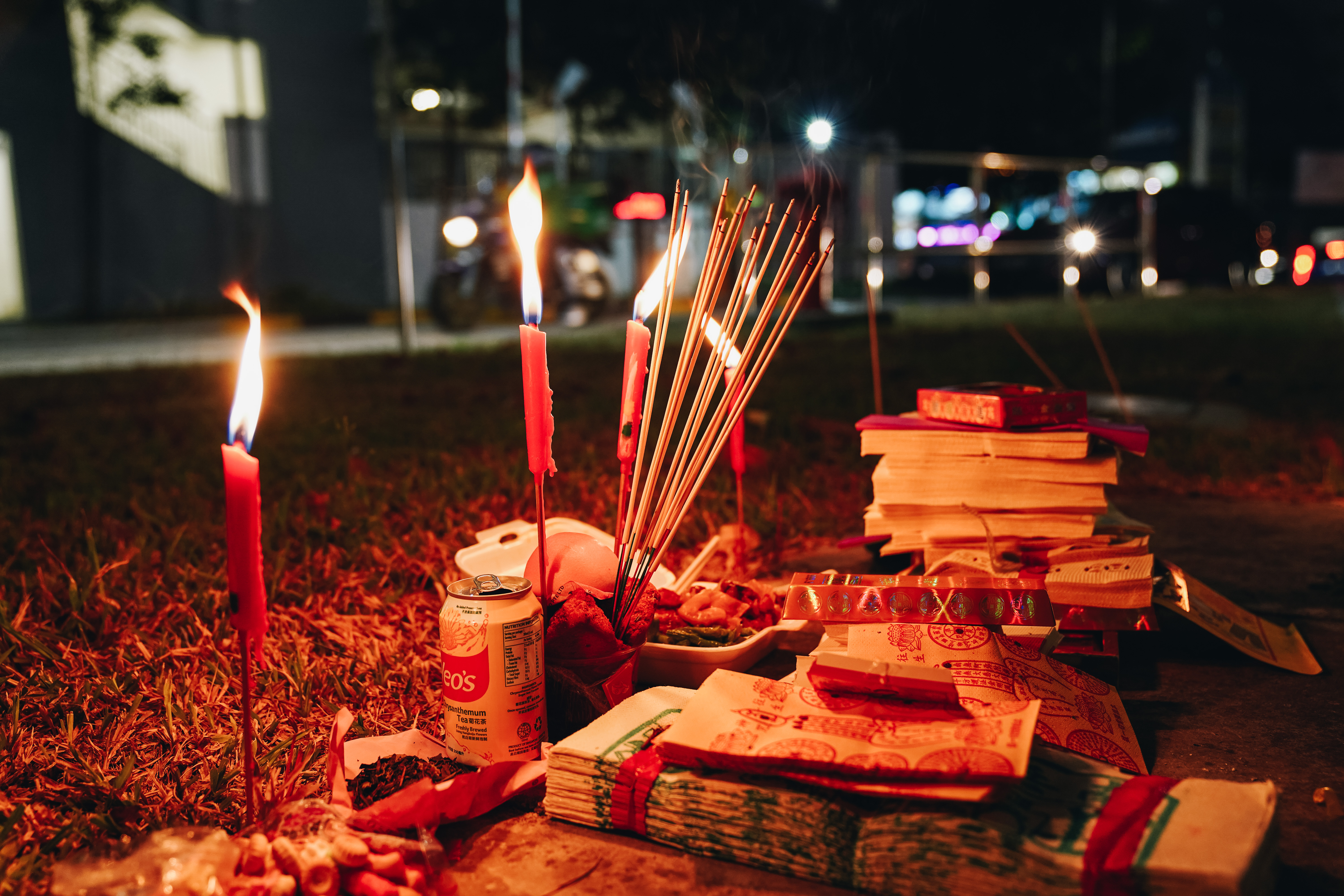 Offerings that are used to appease wandering souls. Image via Rachel Ng for Mothership.
Offerings that are used to appease wandering souls. Image via Rachel Ng for Mothership.
However, despite being practised by many during the seventh month, some traditions like burning offerings don’t actually come from Taoist or Buddhist beliefs.
Burning offerings is more cultural than religious
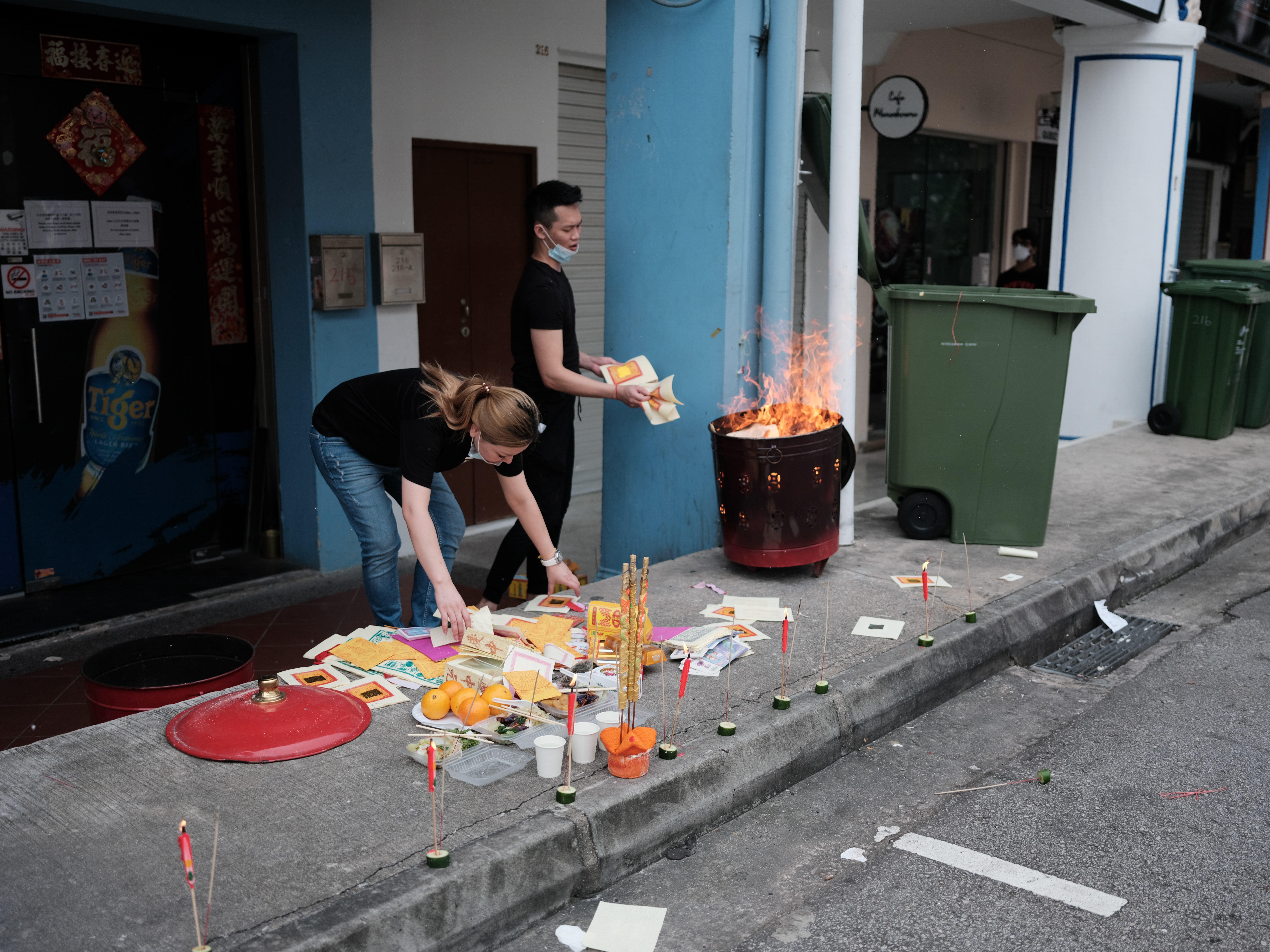 Devotees burning and scattering joss paper. Image via Unsplash.
Devotees burning and scattering joss paper. Image via Unsplash.
“True blue Taoists and Buddhists don't really burn offerings”, Shi, who practises Mahayana Buddhism, said.
Shi believes that the first recorded instance of burning paper offerings dates back to China’s Northern and Southern dynasties.
A Chinese cultural practice that was cultivated centuries ago, paper money was offered to deceased royalties and placed in imperial tombs instead of real money or jewellery, for fear that they would be stolen by tomb raiders.
“And in ancient China, when the royalty did something, commoners would follow,” said Shi.
And so, the tradition of burning paper offerings to the dead began.
But why paper?
Shi shared with us an old folktale about a scholar who sold paper for a living. To sell more paper, he came up with the idea to sell paper “money” that could be offered to the dead.
“And because the dead couldn’t dispute that they didn't need the money, it worked!” Shi chuckled, acknowledging how ingenious the idea was.
Today, this tradition continues, but in a tightly packed urban area like Singapore, the outcomes — scattered half-burnt joss paper along common walkways and ash flying in the air — can be pretty messy.
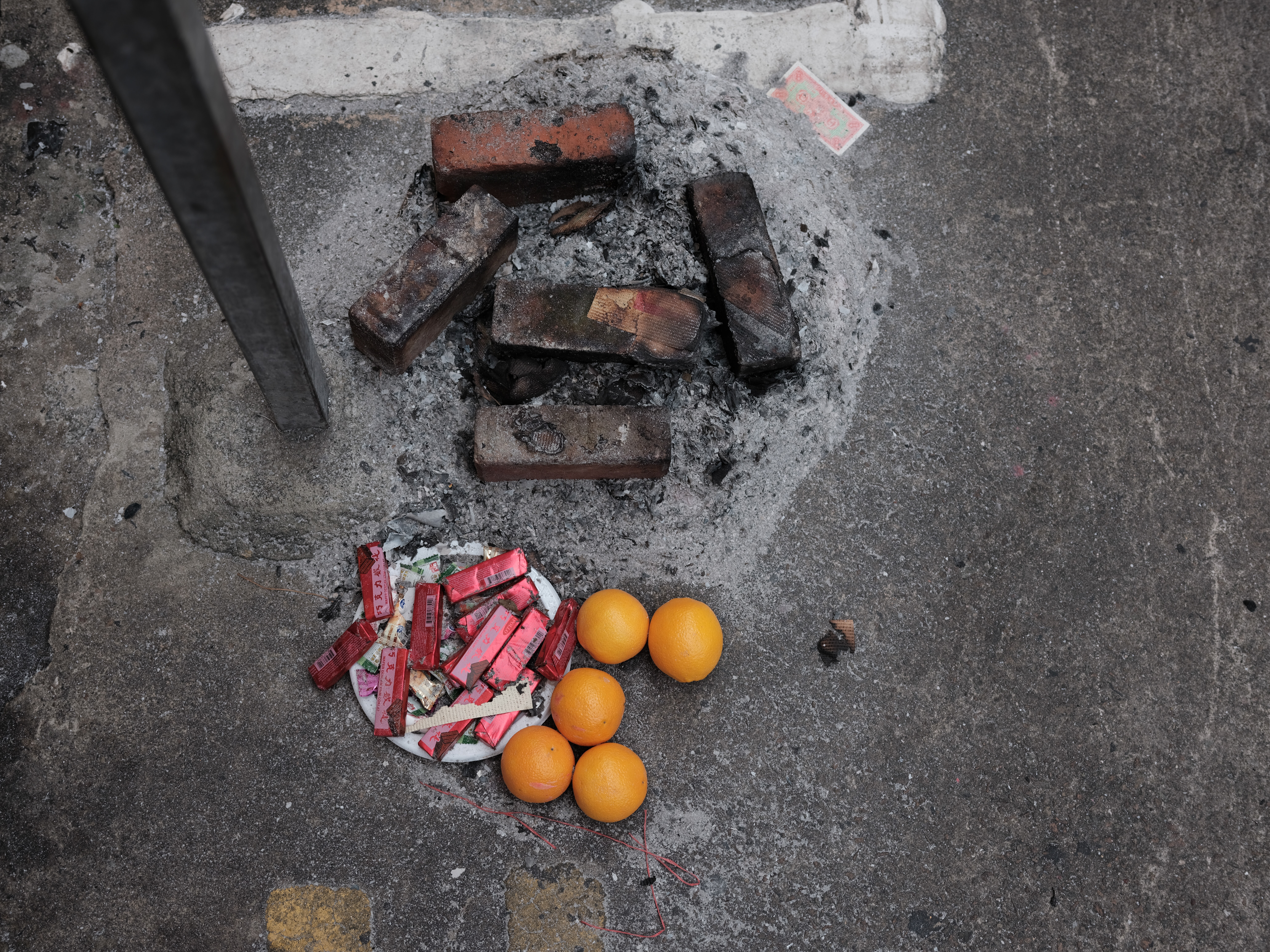 Ashes and food are left on the ground. Image via Unsplash.
Ashes and food are left on the ground. Image via Unsplash.
“People think the more we burn, the better it is,” Shi said, “but we can't burn for all the countless souls.”
In Taoist and Buddhist beliefs, prayers and mantras can multiply the number of offerings, so that everyone will get a share.
So in actual fact, devotees don't need to burn that much, said Shi.
Filial piety and compassion for the deceased is more important
According to Shi, there is something more important than burning paper offerings for the dead: Displaying filial piety and compassion for the beings in hell.
“And this compassion doesn't mean we burn things for them,” he added.
“Compassion means we tell them why they are stuck below so that they can repent and move on. Rather than burning paper gifts, making them attached to it and making it hard for them to move on.”
He hopes that devotees will understand this, and realise that burning large quantities of paper offerings isn’t absolutely necessary.
Believers can help the deceased with rituals like burning joss sticks, which are believed to be a form of spiritual communication.
“It’s like a WhatsApp service for your prayers (to the souls),” Shi explained.
And lighting candles and burning incense, often practised by Buddhists, are light offerings to Buddha and other deities, and also a reminder to believers of the values of virtue and wisdom.
Religious customs aside, there are also good reasons to burn less, namely, being considerate to one’s neighbours.
That includes burning joss papers in designated burners, not scattering them on the ground, and removing food offerings, candles, and joss sticks from public areas after prayers.
 Practices to ensure that neighbourhoods are clean during Hungry Ghost festivals. Image via Ang Mo Kio Town Council/ Facebook.
Practices to ensure that neighbourhoods are clean during Hungry Ghost festivals. Image via Ang Mo Kio Town Council/ Facebook.
&t=20s
Top image via Unsplash.
Follow and listen to our podcast here
If you like what you read, follow us on Facebook, Instagram, Twitter and Telegram to get the latest updates.
